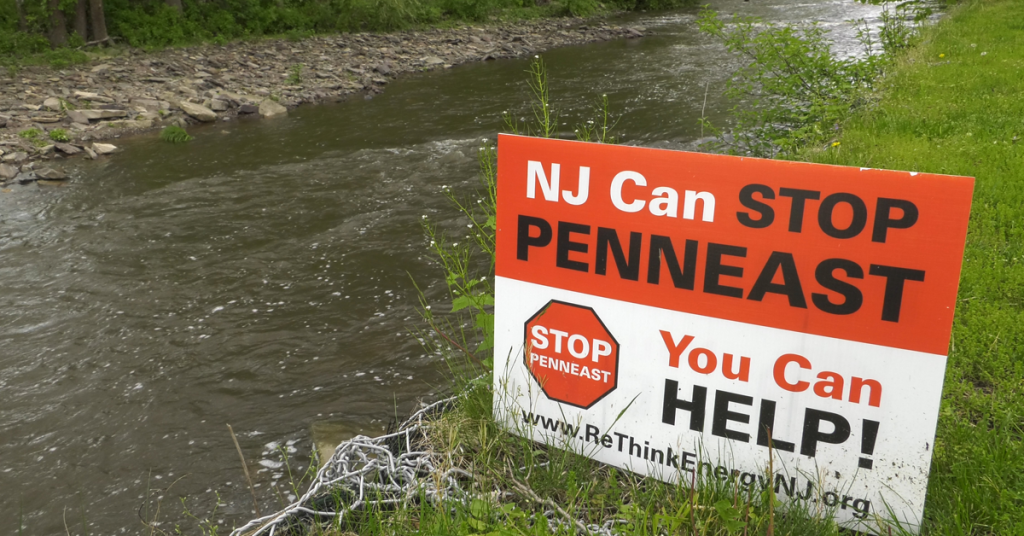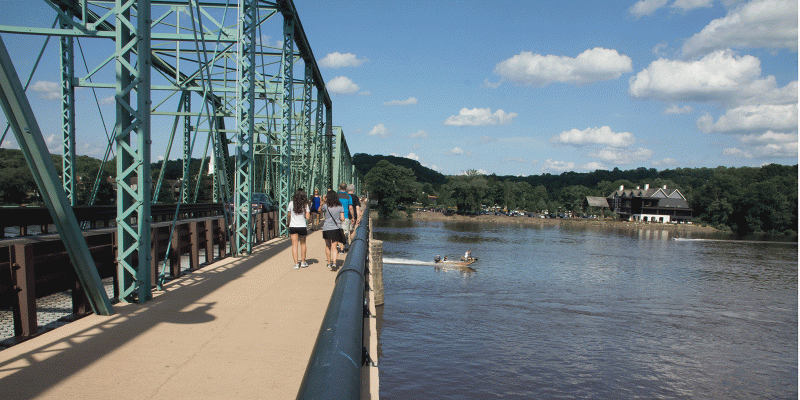Seven years after it submitted its initial application for a 116-mile natural gas pipeline that would run from Northeast Pennsylvania to Pennington, New Jersey, PennEast abruptly cancelled the controversial project.
For much of that time, PennEast has been locked in a legal battle with the state of New Jersey, which had been attempting to block the company from seizing state-controlled land for the project. The decision caught many off-guard because only three months earlier, the US Supreme Court sided with PennEast.
The Federal Energy Regulatory Commission had granted the company eminent domain to seize land from uncooperative landowners, including the state of New Jersey. Approximately a third of the route was to be located in New Jersey.
Hunterdon County, in particular, would have been significantly affected by the project. More than 50 preserved properties in the county sat in the pipeline’s path, according to a statement released by county officials on September 30.

“The decision ending PennEast’s effort to condemn and destroy easements, for which county taxpayers had already paid millions of dollars to purchase, is welcome news,” Hunterdon County Board of Commissioners Deputy Director John E. Lanza said in the statement. “Taxpayer funds were used to preserve these farm acres from development, and, in our opinion, that means any and all development, including a pipeline structure that would disturb a significant portion of the preserved land.”
According to the county’s statement, PennEast, on Sept. 24, submitted an eminent domain dismissal notice to US District Court Judge Brian Martinotti for every Hunterdon County property that was included in the company’s proposal. As of Sept. 30, Martinotti had yet to rule on the notice, but he was widely expected to approve it.
Timothy Duggan, a Lawrenceville, NJ, attorney who has represented Hunterdon County in the pipeline litigation, said of PennEast’s dismissal notice, “I believe this means the project is dead.”
PennEast spokeswoman Pat Kornick issued the following statement on Sept. 27:
“Although PennEast received a Certificate of Public Convenience and Necessity from FERC to construct the proposed pipeline and obtained some required permits, PennEast has not received certain permits, including a water quality certification and other wetlands permits under Section 401 of the Clean Water Act for the New Jersey portion of the Project; therefore, the PennEast partners, following extensive evaluation and discussion, recently determined further development of the Project no longer is supported. Accordingly, PennEast has ceased all further development of the Project.”
“We knew we would get here eventually. It was just a matter of time,” Maya van Rossum told the Bucks County Herald. van Rossum is the Delaware Riverkeeper and leader of the Delaware Riverkeeper Network.
The Delaware River Basin Commission, which is comprised of representatives from Pennsylvania, New Jersey, New York, and Delaware, banned fracking in the watershed, creating yet another obstacle for the pipeline.
“We have advocated, litigated, conducted critical scientific ‘ground-truthing,’ and been clear throughout that we would accept nothing short of cancellation,” van Rossum said.
Advocates of PennEast’s proposal said the pipeline would have produced a reliable source of gas and electricity for communities in and around the Delaware River Towns and created several thousand construction jobs.
Opponents argued that it would come at a high cost to acres of forest, wetlands, and waterways and that it represented an outdated concept built around a fossil fuel at a time when climate change was increasingly tied to extreme weather events.




Leave a Reply